I don’t particularly like new stuff. It makes me sad, for example, to think of factories churning out an ever-growing roster of festive tat, that, for the most part, will be unthinkingly binned the moment the season has been greeted, or the last trick (good luck in Japan!) has been treated. Barring food and drink, it seems to me, the only items where anything less than brand-spanking-newness is completely unacceptable are socks and underpants. I have even, quite happily, given new and thrilling second-lives to junk shop spectacles that, for reasons I chose not to linger on, were no longer required by their previous (similarly mole-like) owners.
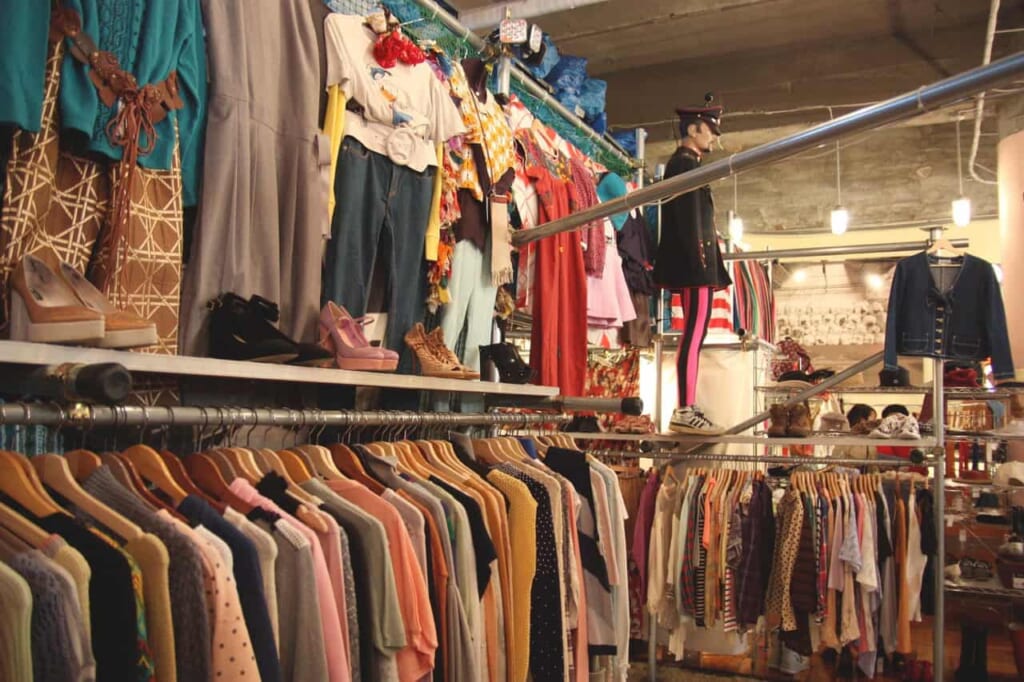
Living a largely secondhand life is not difficult in Tokyo, where there is a thriving thrift-scene, made fruitful by the often luxury-level bric-à-brac disposed of by the capital’s well-to-do and stylish citizens. Only in recent years has the growing discrepancy between Japan’s unchanging bargain-basement wages and its prices, which may not yet be through the roof, but are heading towards it, had a diminishing effect on this once-gushing wellspring of tasteful and high quality secondhand goods. The still-trickling remnants of cheerfully complacent boom-years consumption, however, means that in Tokyo’s myriad recycle shops there is, even now, plenty of new-to-you booty to be discovered.
What follows is not intended as a guide to Tokyo’s best or most unique vintage shopping spots (which are far too numerous, niche and diverse to list in a single article), but rather a necessarily brief, and personal, overview of some of the largest, or most dependable, secondhand outlets that the capital has to offer.
(Gutenberg) Pressed for Space: Secondhand Book Stores
It takes less books than you might imagine to first furnish, then fill completely, an average Japanese room. This space-related snag has not yet, however, deterred me from my lifelong habit of popping out for a simple stroll, and then hobbling back home again, haversack bulging with spellbinding paperbacks and weighty art compendiums.
For those who are ready to empty their pockets, sacrifice the last of their shelving capacity, and ascend to the fusty-smelling paradise of the printed page, there is Jimbocho, also known as ‘Book Town’, where a pleasurably panic-inducing number of secondhand sellers are stuffed silly with publications of every kind, including posters and woodblock prints. Particularly recommended for lovers of the visual arts is Komiyama, which has been offering an eye-popping selection of fashion, art and photography books and artifacts since 1939.
For those who dare not test their limits in that overindulgent Eldorado of book-buying, but still wish to keep their hand in, there is Book Off. Branches of the anonymous book recyclers are dotted all over the country, although the varying sizes and selections of each store make some more worthy of a visit than others. Tokyo’s Ikebukuro Sunshine 60 branch (located quite near, but not actually in Sunshine 60) devotes a satisfyingly large amount of shelf-space to both English language, and art and design books.
There is also every reason to visit Asakusa’s Infinity Books, a cozy, calming, no-fuss repository, which offers thousands of secondhand English language publications at reasonable prices, as well as hosting regular events and offering English lessons.
The Salvation Army Bazaar
Taking a quick optical-inventory of the contents of my apartment reveals to me that around half of everything I own came to me via the Salvation Army Bazaar. The lamps, plant pots, and plates I eat my dinner off, as well as many well-thumbed books and the bookshelves to put them in, were all found at this bustling, but off the beaten track, Saturday morning marketplace. There are rewards for those willing to sift through the clothes, jewelry, and even vinyl LPs here, but the real treasure is to be found in the glassware and crockery section, where vintage pieces by desirable Japanese brands are often on offer at agreeable prices. This collectable cornucopia is supervised by a staff of friendly and helpful volunteers, and all proceeds go towards the Salvation Army’s charitable works.
 Salvation Army Bazaar Wada
Salvation Army Bazaar Wada
STORE- 2 Chome-21-1 Wada, Suginami City, Tokyo 166-0012, Japan
- ★★★★☆
Treasure Factory
Known colloquially by the slightly jarring diminutive ‘Tre-Fac,’ Treasure Factory runs a chain of (usually) well organized and airy thrift store warehouses, where most of the essentials of everyday life can be picked up in nearly, and not-so-nearly-new versions. From furniture and fashion to once-gleaming kitchenware, Tre-Fac’s staff have liberated it from some other sucker’s overstuffed apartment in the hope that you might take it home to yours, lose it amongst your carelessly curated knickknacks and bibelots, and sell it back to them (at a knockdown price) when you are forced to move. Sir Elton John’s Circle of Life referred specifically to this ever-oscillating trade in used-once Italian moka pots and never-even-got-it-out-of-the-box battery-operated somen noodle servers. To my knowledge, the Nerima branch is the biggest and best of Tokyo’s Treasure Factories.
Hard Off
Not even the funniest name amongst the great recycling family of Offs (for my money that honor goes to Liquor Off, the home of pre-owned alcohol; as with the spectacles, it’s best not to ask too many questions), Hard Off is similar to Treasure Factory, but with a greater level of random surprises amongst its ever-changing inventory. With close to a thousand stores of varying sizes nationwide, the Oizumi-gakuen branch, located conveniently close to the aforementioned Treasure Factory, is perhaps the capital’s most colossal. Crammed floor-to-ceiling with clothes (including vintage kimonos and related sundries), jewelry, crockery, utensils and machinery, it is particularly good for musical instruments and electronic equipment, the most tantalizingly risky of which is sold cheaply with a green label designating it as no-guarantees ‘junk’.
For collectors or students of the cultural artifact, this palace of pre-owned paraphernalia rivals Tokyo’s greatest museums, but the store, bafflingly lacking in self-confidence, continually advertises itself over the speaker system to customers who are already there. If it wasn’t for the frequently repeated and somewhat spooky assertion that Hard Off is my ‘Dream Place’ (which, for best-left reasons related to my own fragile psyche, always puts me in mind of Arnold Böcklin’s Isle of the Dead), I would spend all day, every day, here, looking at 70s tape recorders and wondering if I could make them work.
The Thrill of the Chase
Tokyo offers a thousand initially-unpromising spots, that with just a little digging turn out to be treasure troves. At certain specialist suppliers, provided you have the funds, it’s like shooting secondhand fish in a barrel. Personally, I’m glad to limit, if just by a little, my consumption of shiny new items and objects. And while I’m rummaging my way through the capital’s well-stocked recycle outlets, I’m happy in the expectation, that something somebody else no longer wanted, barring their socks and underpants (but not necessarily their spectacles), will turn out to be just the thing I need.
Featured Image: Gianpiero Mendini
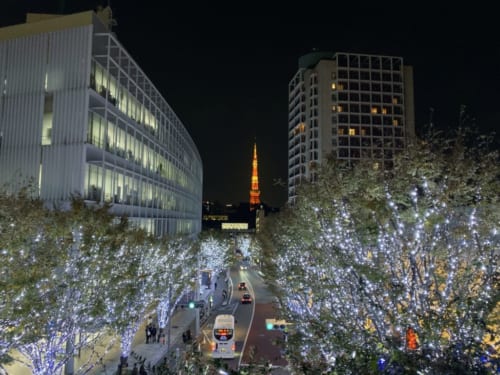

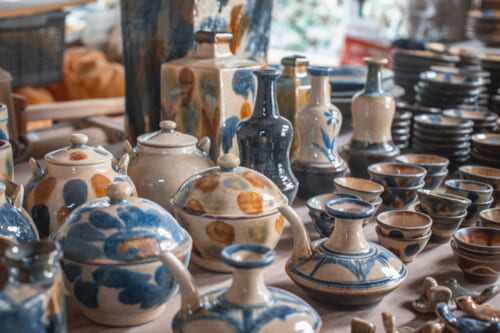
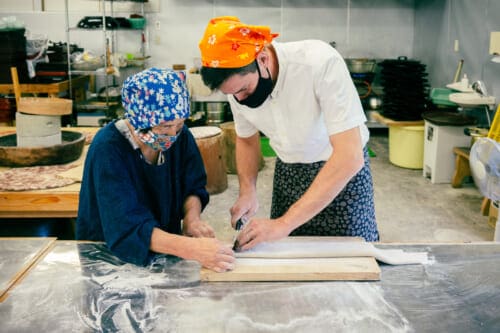
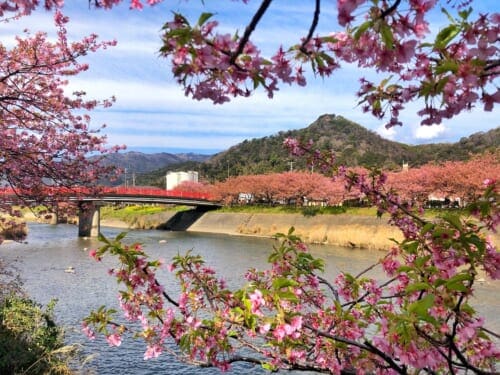
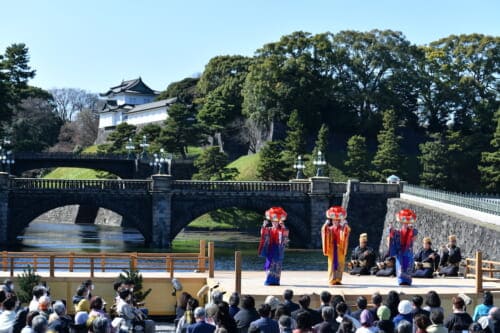

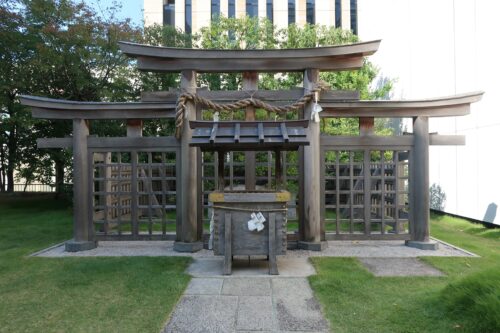



No Comments yet!